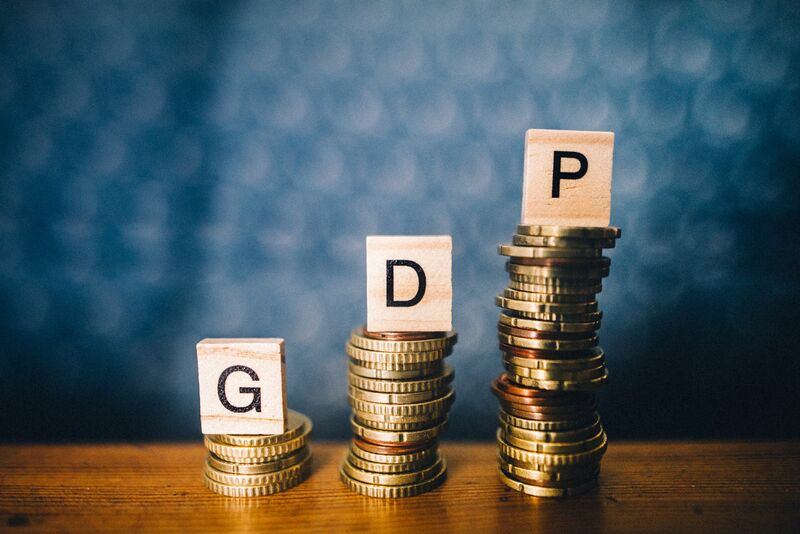CEL for Teachers’s Updates
Week 4 - Gross Domestic Product
Week 4 The Gross Domestic Product (GDP)
The GDP is one of the most ubiquitous Economic indicator used in our world, yet, how is the Gross Domestic Product actually derived? What is the history to the invention of this statistic and why does the GDP have such power in our social reality? How is this phenomenon linked to the concept of Banking Education that was developed by Freire?
GDP - The most powerful and common economic indicator created? (MM Desk, 2021)
Lesson Objectives:
1. Explain how the GDP is derived
2. Define GDP, economic growth, banking education
3. Reflect: What are the ways I have been “banked” in my education that creates a sense of unbridled faith in the GDP?(Personal Update 4 - 200 words)
4. Comment on 2 Peers' Updates (75 words using terms and ideas learned)
Pre-Session Material (please complete before synchronous sessions)
Take notes and type your wonderings at the end of this pre-session below.
What is the GDP and how is it derived? How is GDP helpful? Problematic?
(CNBC. 2018)
Who is Freire and What is "Banking" Education?
Either watch or read Freire's own words - Pedagogy of the Oppressed chapter 2
(Raja, 2019)
(Freire, 2018)
References
Freire, P. (2018). Pedagogy of the oppressed: 50th anniversary edition. Bloomsbury Publishing USA.
CNBC. (2018). What is GDP? [Video]. In YouTube. https://www.youtube.com/watch?v=iLom1WlqwS0
MM Desk. (2021, April 7). Why GDP is not a Good Measure of Economic Welfare? [Photo]. Machine Maker. https://themachinemaker.com/market/gdp-economic-welfare-gnh-hdi-gep-0704
Raja, Dr. M. (2019). Paulo Freire: The banking concept of education [Video]. In YouTube. https://www.youtube.com/watch?v=_L6tTz2CUQw
Comment: What new insights have you gained about the GDP?
What is a wondering you have as a result of this week's pre-session materials?



I would love to see what a government policy that blends GDP, Gross National Happiness (GNH), Genuine Progress Indicator (GPI), and Social Progress Index (SPI) as key metrics and part of the research phase would look like.
Me too. Where is this underway or underway in part?
It's ironic that informal economies which are not typically reflected in GDP statistics, particularly in developing countries, are tied to areas linked to waste or production for the benefit of developed countries. For example, recycling and waste management in Africa and Southeast Asia. Yet these informal activities which are not taken into consideration in GDP statistics are contributing to livelihoods and survival for some.
The models and theories taught to economists, politicians and those in the financial sector are learned, followed and accepted as truth.Therefore our world has unfolded into what it is today- how countries consume, produce and interact. Few people have questioned the status quo and sought to develop different working models. My developing insight is that CEL is about questioning these models, theories and existing systems. I thought it was going to teach me the answers. Is our current economy an outcome of the industrial revolution like schools are? Will alternate systems like Bitcoin ever become mainstream if they are regulated by governments that have been banked What will it take to roll out a new economic order ?
@Kristina Pilgueva,Good point actually. I think China can measure its GDP easily because of Wechat and Alipay, whereas there are many counties where Cash is still the King. I think digital goods might have shrunk the GDP calculation but then I would think that overall, more consumers can afford the lower prices so perhaps that would depend on popularity? I also wonder if countries replying on more cash-exchange probably generate higher GDP than what the GDP formula can calculate? I remember reading a funny short story on buying and exchange goods/services where there is no net cash flow but the exchange has contributed to overall GDP! Really looking forward to the coming session!
As for the Banking education, I am wondering if we are questioning the way we educate, including the way we tell the students this is how our banking system is working wonderfully? Lots of flaws in the current system consider we could not predict the financial crisis so what is the way forward?
I really liked the insights about the digital part of the economy. It reveals that traditional economic views may not be able to adequately absorb new societal trends and changes and therefore represent an accurate state of the economy. Since the digital goods / services play a more important role in the lives of the people I wonder how can effectively the economists include this section into their calculations?